If Priligy hasn't worked well enough—or maybe the side effects drive you nuts—you're probably hunting for something better. There are more ways than you'd guess to tackle premature ejaculation these days. In 2025, guys have a few real choices, from other prescription meds to skin creams and even natural pills. Some options have years of research behind them, while others are newer or just not as mainstream.
You might have heard of people using antidepressants like sertraline or paroxetine, sometimes just off-label, to delay ejaculation. Then there are topical anesthetic creams, which work by basically dulling sensitivity so you last longer. And for those not keen on prescription drugs, a lot of talk circles around natural supplements—think zinc, L-arginine, and ashwagandha—which are easy to find and don't call for a trip to the doctor.
Every solution has pros, but also some pretty real downsides. Side effects, results that don’t hold up for everyone, or just plain inconvenience—these are things guys deal with. The smart move is to know what you’re getting into before you swap meds or hunt for supplements. So, let’s lay out each alternative clearly, weigh the good and the bad, and get you closer to a decision that fits your life.
- Dapoxetine Alternatives Overview
- Sertraline (Zoloft)
- Paroxetine (Paxil)
- Clomipramine
- Topical Anesthetics
- Natural Supplements (L-arginine, Zinc, Ashwagandha)
Dapoxetine Alternatives Overview
If you’ve ever googled “Priligy alternatives” after a frustrating doctor appointment, you’re in good company. Dapoxetine (brand name Priligy) may be the only pill approved in some places for premature ejaculation (PE), but it’s definitely not the only option out there in 2025. In fact, most guys with PE end up checking out other meds, creams, and even natural supplements after finding dapoxetine either doesn’t last long enough, costs too much, or just brings on annoying side effects like dizziness or nausea.
So, what’s actually out there if Priligy hasn’t panned out? The biggest groups are:
- Other prescription meds, especially certain antidepressants that doctors use “off-label” (not officially for PE, but they work).
- Topical anesthetic creams and sprays—these numb things down and physically help you last longer.
- Natural supplements, which usually include a mix of vitamins, minerals, and herbal stuff.
Sertraline and paroxetine are popular alternatives—both are SSRIs like dapoxetine, but tend to work for daily control instead of the take-as-needed routine. Clomipramine (a tricyclic antidepressant) is another you might see, working in much the same way. All of them share something with Priligy: they boost the amount of serotonin in the brain, slowing down ejaculation. While they’re not officially labeled for PE in a lot of countries, doctors often prescribe them when Priligy isn’t a fit.
Then you’ve got the topical route. Lidocaine and prilocaine are the big names here. Imagine a numbing cream you put on right before sex—yeah, sounds weird, but it works for a lot of guys and avoids most of the systemic side effects you’d get with pills. There’s also the “natural” market. L-arginine, zinc, and ashwagandha are top sellers. These aren’t miracle cures by any stretch, but tons of guys try them since they’re easy to grab without a prescription.
| Alternative Type | Main Action | Best For |
|---|---|---|
| SSRIs (Sertraline, Paroxetine) | Boost serotonin, delay ejaculation | Daily management, steady results |
| Clomipramine | Serotonin boost, multi-use | Daily or as-needed, sensitive cases |
| Topical Anesthetics | Numbness, reduced sensitivity | On-demand, fewer systemic side effects |
| Natural Supplements | Improve blood flow, mood, stress | Those avoiding prescription meds |
It's not a one-size-fits-all deal. Each alternative comes with its own perks and headaches. By now, doctors expect guys to ask for more than just “the Priligy pill,” and the right option for you could be totally different than for someone else. The next sections break down how each one stacks up—in plain English, with all the real pros and cons included.
Sertraline (Zoloft)
Sertraline isn’t just for depression or OCD—doctors have been using it off-label for years to help guys with premature ejaculation. It’s not some underground secret; a stack of studies over the last decade shows it works for a lot of men. As a selective serotonin reuptake inhibitor (SSRI), sertraline changes your brain’s approach to serotonin, which, in turn, can delay climax. Some research has found that sertraline can lengthen the time to ejaculation by three-to-five times compared to no meds at all—that’s a huge jump if you’re currently clocking in under a minute.
Sertraline comes as a daily pill (usually between 25 mg and 100 mg), but some guys take it just a few hours before sex. Both ways have pros and cons. It can take a week or sometimes longer to see results, so don’t expect a magic bullet on night one. Your doctor might tweak your dose a few times until you find the sweet spot. The key is patience—and having a doc tuned in to sexual health issues.
Pros
- Backed by 20+ years of data for off-label use in premature ejaculation cases.
- Can take daily or as-needed, giving you flexibility.
- Fewer ups and downs compared to some other SSRIs—people usually tolerate it pretty well.
- Popular, so most primary care docs know how to prescribe and manage side effects.
- Covered by most insurance plans, especially if you’ve also got depression or anxiety.
Cons
- Not FDA-approved specifically for PE medication, so it’s off-label (insurance might push back).
- Can bring sexual side effects like lower libido or delayed orgasm—kind of a double-edged sword.
- Nausea, fatigue, sweating, or mood swings hit some guys, especially in the first weeks.
- If you stop suddenly, you might get withdrawal symptoms—always taper under a doctor’s guidance.
- You shouldn’t mix sertraline with other serotonergic drugs or certain supplements.
| Dosage | Typical Time to Effect | Reported Efficacy |
|---|---|---|
| 25–100 mg daily | 7–21 days | 3–5x longer ejaculation time |
If you’re thinking about sertraline, talk to your doctor about what you want from Priligy alternatives. Bring up any other meds or supplements you’re taking, and don’t expect instant results—the payoff usually comes if you stick with it a few weeks.
Paroxetine (Paxil)
Paroxetine—better known as Paxil—shows up in a lot of Google searches if you’re looking for Priligy alternatives. While it’s officially used for depression and anxiety, plenty of doctors use it off-label to help guys with premature ejaculation. Here’s why: Paroxetine is a selective serotonin reuptake inhibitor (SSRI), which sounds technical but just means it increases serotonin in your brain, helping you delay ejaculation.
Compared to Priligy, paroxetine is taken daily, not just before sex. It’s been studied for years. Clinical trials actually found that daily paroxetine can boost time to ejaculation by 6-10 times compared to a sugar pill. That makes a huge difference for a lot of men, especially when nothing else works.
Pros
- Works well for many men with severe premature ejaculation
- Long track record, so side effects and results are well documented
- Affordable—generic versions exist in most countries
- Often increases time to ejaculation dramatically
- Can treat mild anxiety or depression at the same time
Cons
- Needs to be taken every day, not just when needed
- Common side effects: nausea, sweating, low sex drive, possible erectile problems
- Withdrawal symptoms possible if you stop suddenly
- Possible interactions with other prescription meds
- Full effect can take a few weeks to kick in
One important thing: You’ll likely need a prescription and regular check-ins with your doctor. If you’re already on other meds, it’s even more important to mention it. And while paroxetine can help a lot with premature ejaculation, there’s a chance it can cause your sex drive to dip, or make it hard to climax at all. Some guys are fine with that—others find it’s a deal breaker.
| Aspect | Paroxetine (Paxil) |
|---|---|
| Dosing | Daily |
| Typical Onset Time | 2-4 weeks |
| Generic Available | Yes |
| Main Side Effects | Nausea, low libido, sweating, sleep issues |
Bottom line: Paroxetine (Paxil) can be a solid choice if you want a proven medication, especially if you need daily help or you’re dealing with anxiety too. Just weigh the upsides and the side effects honestly with your doctor before jumping in.
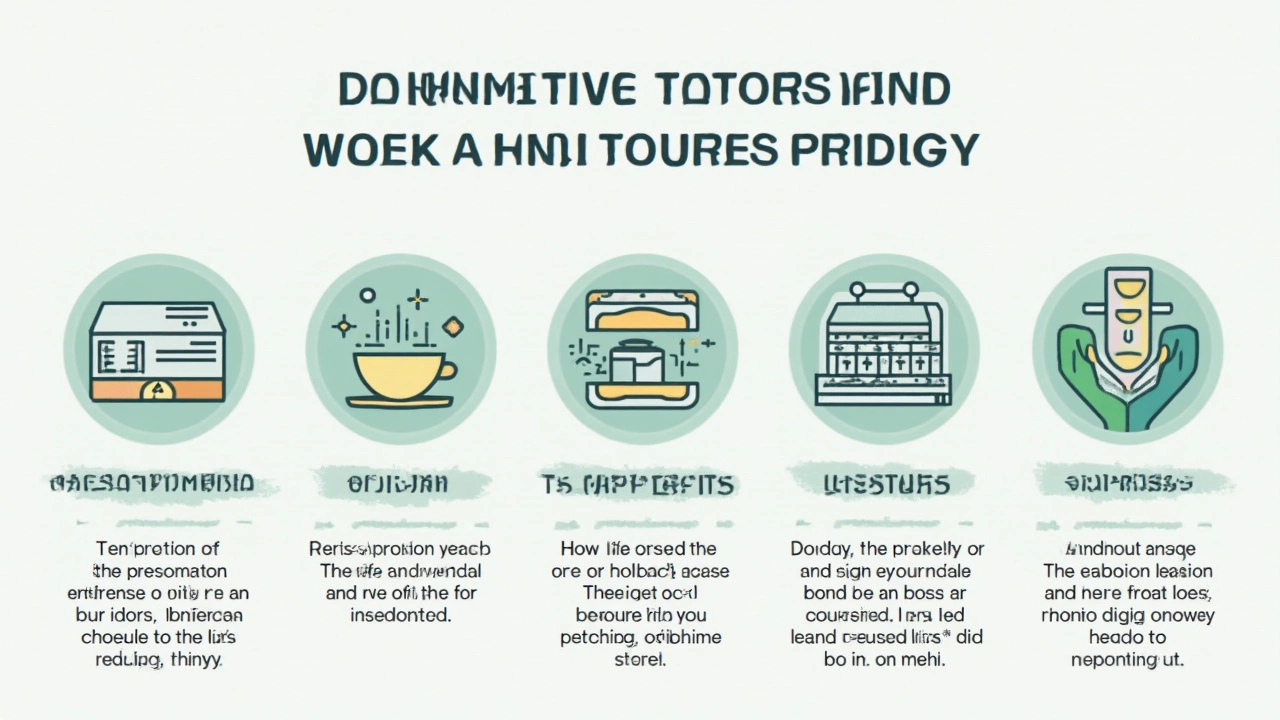
Clomipramine
Clomipramine isn’t just for obsessive-compulsive disorder—docs started trying it for premature ejaculation back in the 1970s, way before meds like Priligy hit the market. It’s a tricyclic antidepressant, meaning it tweaks your brain’s serotonin and norepinephrine levels. When these chemicals rise, ejaculation gets delayed. Some urologists even say the effect can kick in with just a low dose, which is good if you’re worried about side effects.
Here’s what makes clomipramine stand out: you can take it daily, or you can take it before sex as needed. The “on demand” option is pretty handy if you don’t like being on a regular pill schedule. Doses usually start at 10–25 mg, depending on how your body reacts. In several real-world studies, guys using clomipramine experienced a delay in ejaculation, often lasting two to three times longer than usual. Not everyone sees the same results, but if Priligy alternatives are on your radar, it’s worth considering.
Pros
- Noticeable delay in ejaculation, even at low doses
- Both daily and "just before" sex dosing possible
- Often works quickly—sometimes within a few hours
- Long track record for safety in adults
Cons
- Possible side effects: dry mouth, drowsiness, dizziness, sweating
- Not recommended for men with heart problems
- Initial sedation or tiredness can bother some users
- Requires a prescription and regular medical checks
With clomipramine, you need a prescription and a quick checkup to make sure it’s safe for you, especially if you have heart issues or take other meds. Some guys love it for its flexibility, but tiredness is a common early complaint. If you’re worried about mixing meds for your sexual health, definitely talk it out with your doctor before trying this one.
Topical Anesthetics
If you’ve looked up Priligy alternatives, you’ve probably heard about topical anesthetics. These are creams or sprays you use directly on the penis before sex. The idea? They numb the area so you’re less sensitive and last longer. The two most common ingredients are lidocaine and prilocaine, the same stuff you’d see at the dentist or in minor surgery numbing gel.
Unlike pills, these work fast—usually within 10 to 20 minutes. For guys who’d rather skip swallowing meds or worry about mixing with other prescriptions, this is a pretty straightforward choice. Some products, like Promescent, are FDA approved for premature ejaculation. You’ll find them online, at some drugstores, and sometimes even in the same aisle as condoms.
Pros
- Simple to use: Just apply, wait, and wipe off before sex. No prescription needed for most brands.
- Fast results: You don’t have to plan hours ahead. Most products work in under 20 minutes.
- Local effect: Less risk of systemic side effects since the action’s just on the skin, not your whole body.
- Works for many: Studies show some creams can double or even triple time-to-ejaculation in regular use.
Cons
- Reduced pleasure: The same numbness that helps you last can also cut sensation—some guys say it dulls the experience too much.
- Partner transfer: If you don’t clean up well, your partner could get numb too, which can kill the mood fast.
- Allergic reactions: There are occasional cases of rash or irritation—especially with overusing or sensitive skin.
- Interruption: You do need to pause for application. Some find it disrupts the flow of things.
Some quick facts about lidocaine/prilocaine creams in practice:
| Product | Active Ingredient | Usual Time to Work | Prescription Needed? |
|---|---|---|---|
| Promescent | Lidocaine | 10-20 min | No |
| EMLA Cream | Lidocaine + Prilocaine | 20-30 min | Yes (most countries) |
If you’re thinking about using topical anesthetics as a Priligy alternative, always read the label, start with small amounts, and make sure to wipe it off before action to avoid making things awkward for both of you. They’re not a cure, but for plenty of guys, they’re a total game-changer in the bedroom.
Natural Supplements (L-arginine, Zinc, Ashwagandha)
It’s easy to see why guys look for natural supplements when it comes to Priligy alternatives. Nobody likes the sound of side effects or a prescription label. L-arginine, zinc, and ashwagandha are the big names in this group. You’ll spot them in “men’s health” blends on store shelves and all over the internet. But how much do these actually help with premature ejaculation?
L-arginine is an amino acid that helps the body make nitric oxide, which is important for blood flow. Better blood flow can mean stronger erections, at least in theory. Some small studies even hint L-arginine could help performance—though most of this research focuses on erectile dysfunction more than PE. Zinc is another staple, known for hormone support, including testosterone. There’s data showing zinc deficiency can be linked to less sexual desire and problems with ejaculation, especially in guys with poor diets or chronic health issues. Then there’s ashwagandha, an herb used in traditional medicine that’s said to lower stress and improve stamina. There are early reports (including a 2020 study) where men said they lasted longer when using ashwagandha extract.
"Herbal supplements can be useful, but you have to remember they’re not magic bullets—effects are mild and not guaranteed for everyone." – Dr. Peter Stanworth, Men’s Health Today (April 2025)
One thing people love about natural options is the low hassle—most are over-the-counter and don’t need a doctor’s visit. Plus, many claim extra perks: immune support, better energy, or less anxiety. But don’t get swept up by hype; the science is early and some supplements could clash with medications you’re already taking. For example, L-arginine isn’t great for guys with heart or blood pressure issues. With ashwagandha, file it under "maybe helpful"—definitely not a sure thing, and don’t expect overnight results.
Pros
- Easily available without a prescription (just walk into a pharmacy or order online)
- Perceived to be safer because they’re "natural," but still, moderation matters
- Possible extra benefits, like reduced stress or overall wellness
Cons
- Proof isn’t strong—results vary a lot from person to person
- Can interfere with some meds (especially heart or blood pressure drugs)
- No regulation or standardization—product quality is all over the place
| Supplement | Main Claimed Benefit | Backed By Studies? |
|---|---|---|
| L-arginine | Improved blood flow, better erection | Some, mostly for ED |
| Zinc | Supports testosterone, may help ejaculation control | Weak, but plausible for deficiency cases |
| Ashwagandha | Reduces stress, claims to boost stamina | Early evidence only |
If you’re thinking about trying any of these, it’s smart to talk to a doctor first—especially if you have any health conditions or take other meds. Natural doesn’t always mean risk-free.

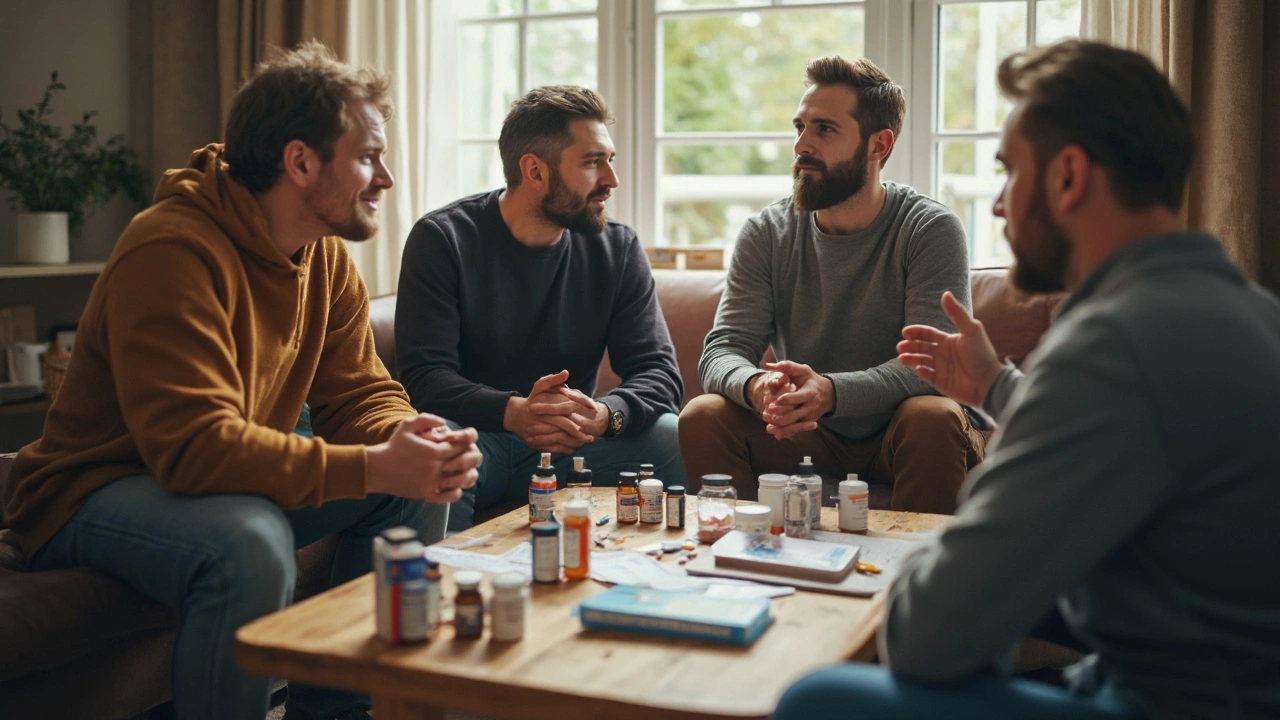
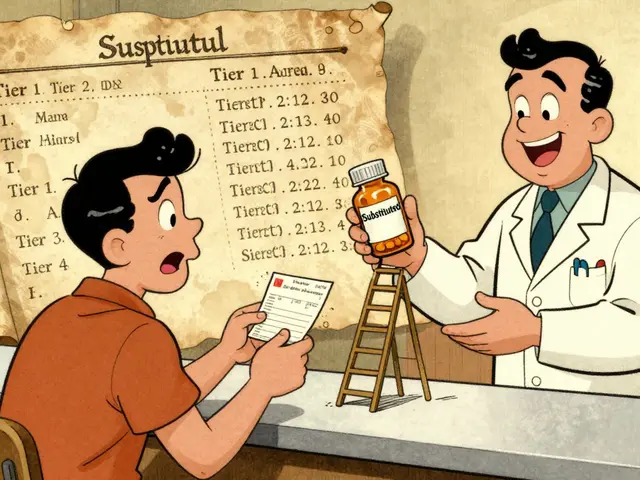
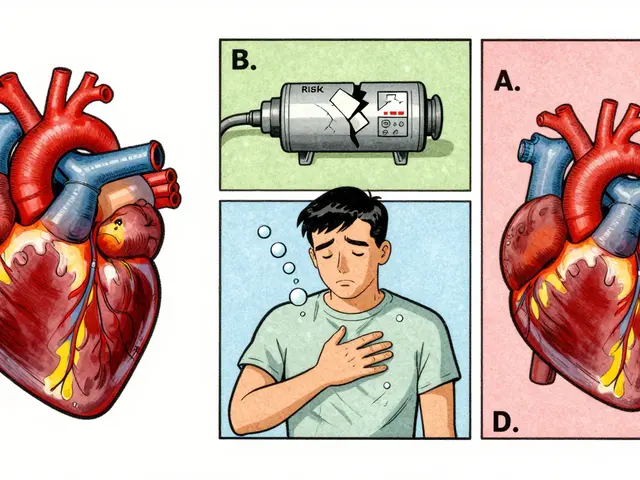
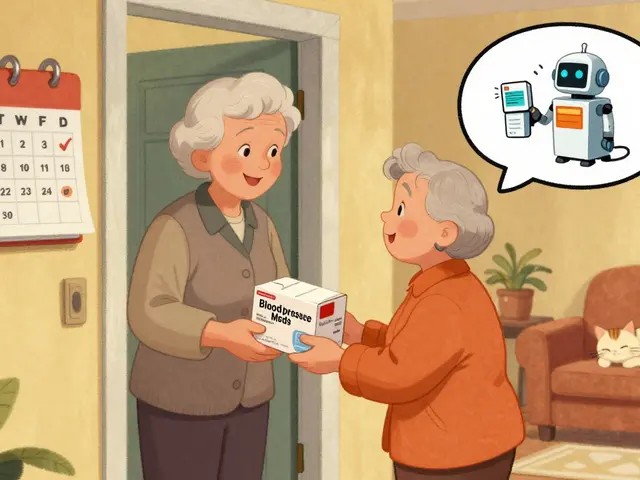

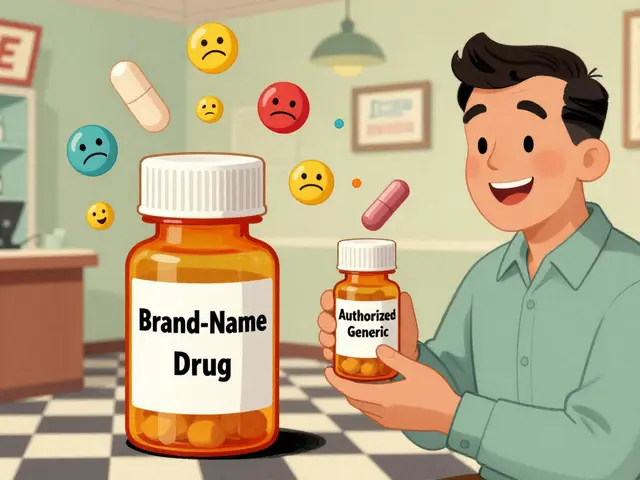

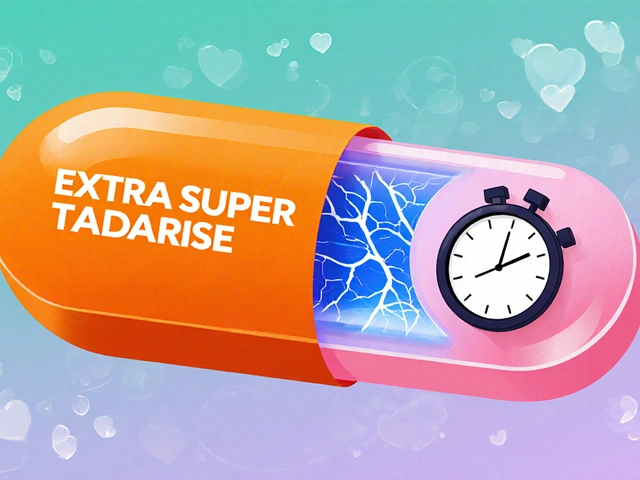
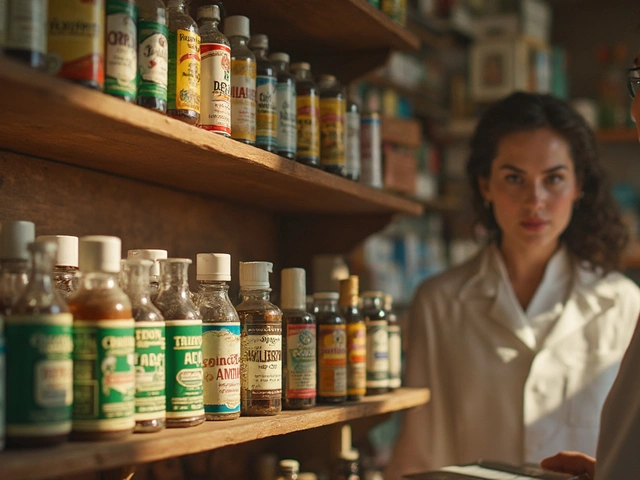
Look, the whole pharmaceutical machine has been pushing Priligy like it’s the only salvation for men, while conveniently hiding the long‑term neurochemical fallout. They market it as a “quick fix” but forget to mention the dizziness, nausea, and the risk of serotonin syndrome if you mix it with other meds. The FDA approvals are basically a rubber‑stamp when the companies pay enough lobbyists, and the real data about tolerance builds up in a matter of weeks. If you’re counting on a pill to solve something that’s tied to anxiety, stress, and lifestyle, you’re buying a band‑aid from a profit‑first industry. You can do better by looking at alternatives that aren’t shackled to a corporate pipeline. The off‑label SSRIs have decades of research that the hype around Priligy can’t match. Don’t be fooled by glossy ads; read the peer‑reviewed studies before you swallow another chemically‑engineered promise.
OMG the side‑effects of Priligy are a nightmare 😱💊!
Totally feel you, the nausea alone can ruin a night. A quick switch to a topical anesthetic can save the moment without the gut‑turning feeling.
When you start digging into the alternatives for premature ejaculation, the first thing you notice is that the market isn’t just a handful of pills but a whole ecosystem of options that cater to different comfort zones. The SSRIs like sertraline and paroxetine have been around for years, and the data shows they can stretch performance by three to ten times, but they also bring the classic side‑effects of lowered libido and sometimes a fuzzy brain fog that many guys can’t tolerate. Then there’s clomipramine, the old‑school tricyclic that some urologists swear by because you can take a tiny dose right before sex and feel a noticeable delay without waiting weeks for the drug to build up. Topical anesthetics such as lidocaine‑prilocaine creams are a game‑changer for men who refuse systemic medication; you simply apply the gel, wait ten minutes, and you’re ready to go with minimal systemic impact, though you have to be careful not to numb your partner. Natural supplements like L‑arginine, zinc, and ashwagandha appeal to the “all‑natural” crowd, offering mild blood‑flow improvement and stress reduction, yet the scientific backing is still thin and results vary wildly from person to person. One major advantage of the non‑prescription route is that you don’t need a doctor’s appointment, which saves time and protects your privacy, especially if you’re uncomfortable talking about bedroom issues. However, the lack of regulation means you might end up with a sub‑par product, contaminants, or an ineffective dose, so always check third‑party testing. Cost is another factor; generic sertraline can be cheap, while some branded anesthetic sprays run a premium price that can add up if you use them regularly. Lifestyle tweaks such as regular exercise, mindfulness, and reducing alcohol can amplify the benefits of any pharmacological aid, turning a modest improvement into a solid, sustainable change. Talk to a qualified urologist or a sexual health specialist, because off‑label use requires careful monitoring for interactions with other meds you might be on. Remember that every body reacts differently, so a trial‑and‑error approach, starting with the lowest effective dose, is usually the safest path. Finally, keep an eye on the psychological side; building confidence and reducing performance anxiety can sometimes do more for lasting longer than any cream or pill ever could. In short, there’s no one‑size‑fits‑all solution, but with the right mix of medical advice, product choice, and lifestyle support, you can find an alternative that actually works for you. Stay patient, track your progress, and adjust as needed for the best outcome.
Great overview; the emphasis on trial‑and‑error and professional guidance really underscores a balanced approach that many overlook.
I appreciate the concise wrap‑up, but let me stress that without proper monitoring you risk falling into the “no‑pain‑no‑gain” mindset that the internet loves to glorify 😅. The subtle interplay between serotonin levels and anxiety means a dosage tweak can swing you from “lasting forever” to “can’t get it up” in a single week. Doctors often schedule follow‑ups at four‑week intervals precisely to catch these swings before they become entrenched habits. Also, the psychological boost you get from feeling heard can amplify any pharmacologic effect, turning a marginal gain into a noticeable confidence surge. Don’t ignore lifestyle factors; a simple daily walk or a short meditation can shave seconds off the clock without any side‑effects. Ultimately, a partnership with a clinician who respects your autonomy is the cornerstone of sustainable success.
From a pharmacodynamic perspective, the off‑label utilization of serotonergic reuptake inhibitors delineates a superior therapeutic index relative to the short‑acting dapoxetine, especially when considering half‑life modulation and receptor desensitization kinetics.
hey guys the best part about natural supplements is that they’re easy to get and they’re gentle on the system but they’re not a miracle cure you still need to pair them with good habits
While your enthusiasm is noted, the statement is factually inaccurate; not all supplements are "easy to get"-some require prescriptions or are limited by regional regulations, and the claim "gentle on the system" ignores documented adverse interactions.
It’s disconcerting how quickly the mainstream narrative dismisses the ethical implications of pushing prescription drugs without fully addressing long‑term dependency risks.
Ethical concerns are valid, and a balanced discourse should weigh both the therapeutic benefits and the potential for over‑medicalization.
Honestly, the whole “just try a supplement” hype feels like a lazy shortcut that preys on insecurities. People get bombarded with glossy ads promising instant stamina, yet the underlying science is usually a footnote buried in a press release. When you read the clinical trials, you see modest effect sizes that are nowhere near the sensational claims. Moreover, many of these over‑the‑counter blends contain proprietary mixes that aren’t even listed on the label, which is a red flag for anyone who cares about safety. The marketing departments love to cherry‑pick a single positive study and ignore the bulk of evidence that shows negligible results. If you’re truly looking for a solution, start with an honest conversation with a healthcare professional instead of scrolling through Reddit threads that glorify quick fixes. In addition, lifestyle changes like regular exercise, proper sleep, and stress management can have a far greater impact than any pill you can buy online. Don’t be fooled by the allure of “natural” as a blanket guarantee of safety; natural substances can be toxic at the wrong dose. Bottom line: skepticism is healthy, and a critical eye will save you from wasting money and potentially harming your body.
Reading through all these options, I can’t help but feel a surge of hope for anyone who’s felt the sting of embarrassment in the bedroom; knowing there are multiple pathways-medical, topical, or holistic-means you’re not alone in this fight.
Oh great, another “miracle” cream that promises longer nights while actually turning you into a human popsicle-awesome.
The mechanistic basis for L‑arginine involves nitric oxide-mediated vasodilation, which theoretically could enhance penile hemodynamics, though clinical endpoints remain inconclusive.
National health guidelines should prioritize affordable, evidence‑based treatments over expensive brand‑name pills.
Dear readers, please consider consulting a certified urologist before initiating any off‑label regimen, as they can provide personalized dosage adjustments and monitor for potential drug interactions.
It is incumbent upon the medical community to present a balanced appraisal of the therapeutic alternatives to dapoxetine, yet the current discourse frequently suffers from a paucity of rigorous comparative analyses. While randomized controlled trials substantiate the efficacy of sertraline and paroxetine in extending intravaginal ejaculatory latency, the literature remains conspicuously silent on longitudinal safety profiles in the context of concomitant antidepressant therapy. Furthermore, the paucity of head‑to‑head trials between topical anesthetics and systemic agents precludes a definitive hierarchy of efficacy, thereby obliging clinicians to rely on anecdotal experience rather than empirical evidence. The natural supplement sector, bereft of stringent regulatory oversight, presents a veritable quagmire of heterogenous preparations, each varying in bioavailability and purity, which undermines the reproducibility of any claimed benefit. Moreover, the economic dimension warrants scrutiny; the out‑of‑pocket costs associated with brand‑name topical agents often exceed those of generic SSRIs, engendering inequitable access for patients of modest means. In light of these deficiencies, it is prudent for prescribing physicians to adopt a judicious, patient‑centred approach that integrates pharmacologic data, safety considerations, and socioeconomic factors. To that end, rigorous post‑marketing surveillance and transparent reporting of adverse events must be mandated, ensuring that the therapeutic armamentarium evolves in concert with real‑world outcomes. Only through such meticulous stewardship can we hope to mitigate the inadvertent propagation of suboptimal or potentially harmful interventions. Accordingly, I advocate for the establishment of an interdisciplinary consortium tasked with the systematic review and periodic update of guidelines pertaining to premature ejaculation management. Such an entity should encompass urologists, psychiatrists, pharmacologists, and patient advocacy representatives, thereby fostering a comprehensive perspective that transcends narrow specialty silos. In summary, while the array of alternatives to Priligy is undeniably extensive, the current evidentiary landscape is insufficiently robust to endorse any single modality unequivocally; a nuanced, evidence‑guided strategy remains the optimal path forward.
Upon meticulous examination of the extant data corpus, one discerns a pervasive proclivity toward sensationalism in the popularization of premature ejaculation remedies, an approach that obfuscates the nuanced pharmacokinetic and psychosexual variables at play. The predilection for headline‑grabbing claims regarding “instant results” betrays an underlying commercial agenda, relegating methodological rigor to a secondary concern. A critical meta‑analysis reveals that the heterogeneity of study designs-ranging from open‑label extensions to small‑scale pilot trials-substantially inflates the perceived efficacy of numerous interventions, thereby engendering a false narrative of universal applicability. Moreover, the selective citation of favorable outcomes while omitting null or adverse findings constitutes a textbook case of publication bias, compromising the integrity of clinical decision‑making. From a biostatistical standpoint, the confidence intervals associated with many reported outcomes are excessively wide, reflecting insufficient sample sizes and inadequate power calculations. Consequently, the purported superiority of any singular modality, be it a serotonergic agent, a lidocaine‑based topical, or a nutraceutical blend, remains empirically unsubstantiated. It is incumbent upon clinicians and researchers alike to eschew reductive heuristics and instead adopt a stratified, patient‑specific algorithm that incorporates baseline serotonin transporter genotype, comorbid anxiety metrics, and partner dynamics. Only through such a comprehensive, data‑driven framework can the field transcend the current state of speculative therapeutics and advance toward truly personalized care.